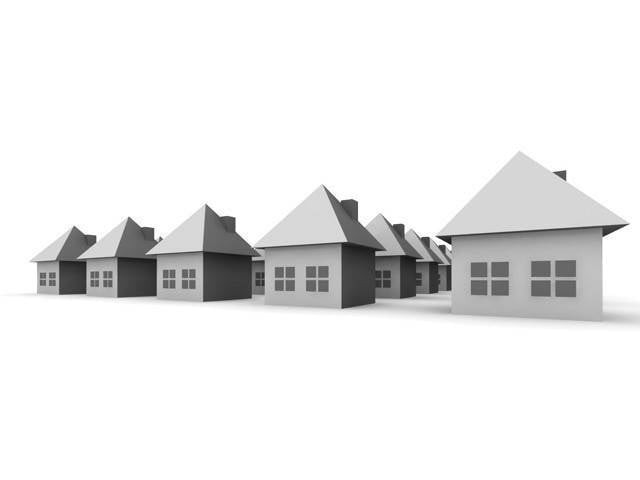KMC property falls prey to ‘China cutting’
Unauthorised shops set up at Liaquatabad Supermarket, gifted to Karachi’s citizens by Bhutto in 1976

After the application of ‘China cutting’ to private and government lands, the practice is also becoming common at different buildings belonging to the Karachi Metropolitan Corporation (KMC).
Coined by the Muttahida Qaumi Movement (MQM), the term ‘China cutting’ refers to the slicing of plots from parks and land earmarked for public amenities, and turning them into residential and commercial properties to be sold off for a huge profit.
Local government departments working under the Sindh government have not even spared the Liaquatabad Supermarket, a building gifted to the citizens of Karachi by former prime minister Zulfikar Ali Bhutto in 1976.
Owned by the KMC, the building had fallen into ruin because of the negligence of the relevant agencies. Many illegal shops have been set up in the upper part of the building under the nose of the authorities.
Some forty illegal shops have also been built in the vacant office of the Karachi Water and Sewerage Board (KWSB) situated in the building. The office was vacated because the building was declared unfit for use due to its dilapidated condition.
Two large warehouse-like compounds were also constructed on the rooftops of shops in the upper part of the Liaquatabad Supermarket last year, which were later demolished on the orders of municipal commissioner Syed Saifur Rehman.
Per sources, shopkeepers who bought the compounds are still looking for the ‘property selling mafia’ to get their money back.
Earlier, a team of reporters from The Express Tribune had visited the abandoned KWSB office, where more than 30 workers could be seen constructing the walls of the shops along with a ‘supervisor’.
When questioned about the ongoing activity, the supervisor locked the office, left the workers inside, and fled the site.
Upon being approached, a KMC official, who requested anonymity, said the shops in the empty KWSB office would be allotted to the affected shopkeepers whose shops had been evicted from various areas of Karachi due to the removal of encroachments.
“The shops were sold to the Liaquatabad Supermarket and nearby shopkeepers for Rs1.5 million to Rs2 million,” the officer said. “Most of the construction work was carried out at night-time, while accommodation had also been provided to workers who sleep on the site.”
According to vendors, the supermarket’s power supply has also been cut off for many years, due to which legal tenants and owners are facing severe problems.
The stairs, toilets, corridors and open spaces of the Liaqatabad Supermarket have also been sold.
The supermarket was inaugurated by Bhutto. However, his nameplate has been uprooted from the building by property mafia and the new generation is unaware of the building’s history.
What is more, the office of the KMC estate inspector is situated on the same floor, a few yards away from the water board’s vacated offices and the China-cutting shops.
When contacted, workers at the estate inspector’s office said no officer was authorised to give a statement on the issue.
According to the shopkeepers, the building suffered dilapidation due to the accumulation of rainwater every year. They lamented that relevant authorities never paid heed to the situation which eventually weakened the foundations of the building.
“We appeal to Bilawal Bhutto Zardari to respect his grandfather’s name and do something about the building,” one of the shopkeepers said. “Just as the Pakistan Peoples Party (PPP) is employing efforts to protect Bhutto’s political legacy, they should also do something to protect this supermarket, which is the late leader’s public legacy. We demand that the PPP-led Sindh government halt the illegal construction going on in the building and restore its electricity.”
Published in The Express Tribune, September 27th, 2020.



















COMMENTS
Comments are moderated and generally will be posted if they are on-topic and not abusive.
For more information, please see our Comments FAQ